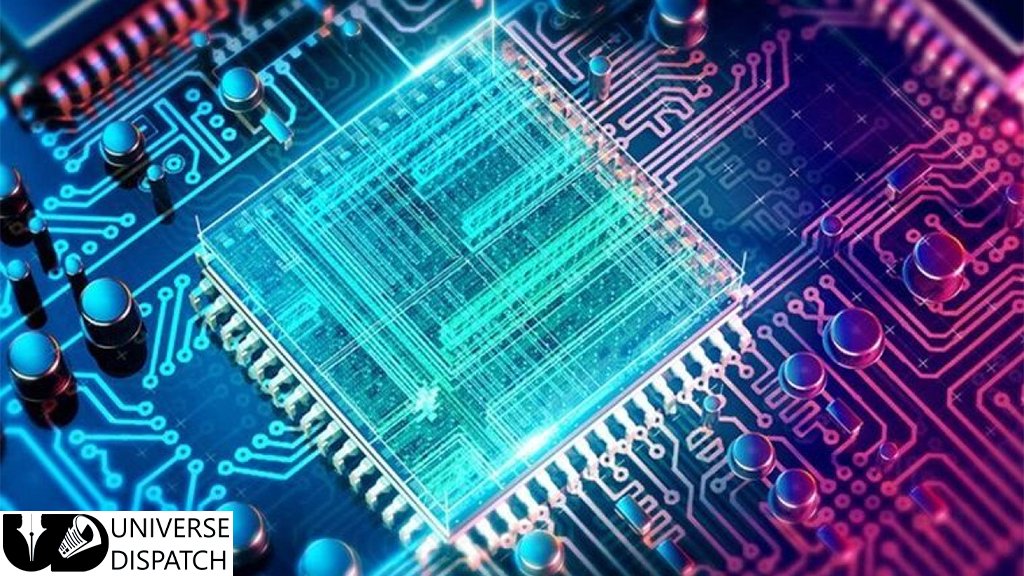Tech Tent: The new ‘space race’ for computer chips
Tech Tent: Silicon chips are at the heart of many of the biggest technology stories of our time. Moreover, without them, car plants around the world have come to a halt. The technology to make them is now seen by the United States as a key weapon in its trade war with China.

On the other hand, access to the latest and most-powerful versions will determine who the artificial intelligence race. In this week’s Tech Tent podcast, we look at the semiconductor industry and try to answer five important questions about chips.
What’s behind the current shortages?
Originating at Ford and General Motors in the US, to Honda in the UK, and electric carmaker Nio in China. Major automotive companies have to cut back production due to a shortage of chips. Why?
Moreover, it seems the pandemic is to blame, continually making every prediction about chip’s demand look out-of-date. First, it made a demand for gadgets soar, as years of digital transformation happened in weeks.
First, it made a demand for gadgets soar, as years of digital transformation happened in weeks. We’ve been talking about working from home and 5G and IoT and the could for years. And now suddenly it’s a reality, says Jodi Shelton, chief executive of the World Semiconductor Association.
Meanwhile, sales of new cars fell off a cliff and automotive executives canceled orders for chips. However, then an unexpected rebound in sales caught them flat-footed, along with their chip suppliers.
Who is making the best chips?
The shortages have made one thing clear, there is no longer just one kind of chip. As demand shifts, so does power in the semiconductor industry.
However, that is no longer the case. Analyst Richard Windsor of Radio Free Mobile says the world has moved on. He outlines two trends, the use of chips for data storage, and the growing importance of graphics chips which aren’t just for making games come to life but play a vital role in artificial intelligence applications and he points to new superpowers in this industry, in particular, the Taiwanese company TSMC.
TSMC is by far the world’s number one manufacturer of cutting-edge silicon chips at this point in time, he explains. It’s very different from Intel. Moreover, building chip factories-or foundries as they are known is a hugely expensive business. Richard Windsor tells us that it can cost as much as $25 billion to open a new foundry with state-of-the-art equipment.
What is the most important company in chip-making?
Mr. Windsor also talks about the vital role played by ASML, a company that is the only supplier of what is finally a printing press for the very latest and smallest silicon chips.
However, not a household name, it has huge market money of about 184bn euros. In any case, ASML liked the description so much that printed it on hoodies for staff. When the company was founded in 1984 there were 10 big players in the chip lithography market, now it is the only one left. As technology became progressively more difficult to master.
The investment needed became progressively larger, then you had the survival of the fittest. Fewer and fewer companies were able to keep up. However, that means ASML is caught in the trade war between the US and China. The Trump administration put pressure on the Dutch government to halt the sale of ASML technology to a Chinese customer.
Why do chips play a role in the US-China trade war?
As China and the United States battle for supremacy in artificial intelligence, access to equipment that builds the latest AI chips is a key weapon. Dr. Pippa Malmgren, a former advisor to President George W. Bush, says the stakes are as high as they were in another technological battle.
Moreover, Taiwan home of TSMC is on the front line of this battle. Given its fight to be independent of China, you might think it would do whatever the US wanted. However, Dr. Malmgren warns that things are not so simple, Chinese money is heavily invested in Taiwan. And I think if you were to ask, can you extricate Chinese backing from the Taiwanese economy, the answer is that it would be very difficult.
Is Moore’s Law over?
Since the 1960s, the chip industry has been governed by Moore’s Law. This predicts that the capability of computers will double every two years as manufacturers cram ever-smaller transistors onto their chips. Moreover, the next few years is stuff working in three dimensions. We can still up the density in a given volume by building more and more silicon layers on top of each other.
The silicon layers are very thin, so you can stack them on top of each other, she says. And don’t expect China to opt-out of this battle. While it is refused access to current chip equipment, the Chinese government will pour huge sums into research into new approaches with the aim of skipping the United States in the next era of the chip economy.




